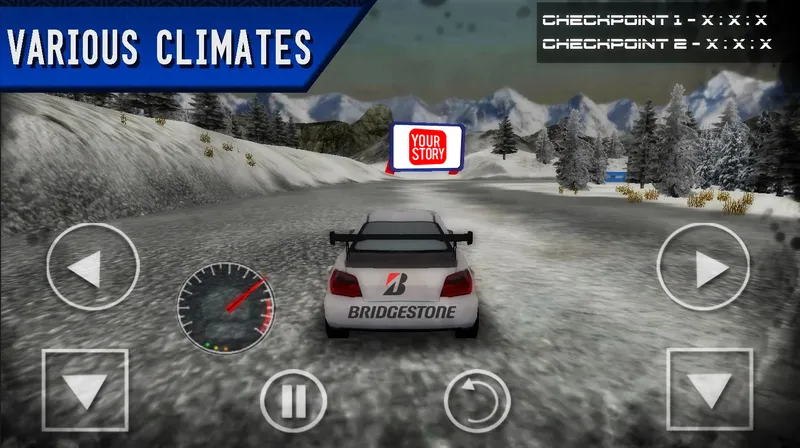Make your games ad-free, yet ad-full. Confused? Here’s how
"The audience has clearly moved on to their mobiles, and you don’t want to miss that bus. And it sure can’t be caught with banner ads and interstitials,” Milind Pathak, COO of MadHouse had warned advertisers of the criminal waste of the potential in mobile advertising. With nearly 60-percent smartphone penetration, all urban Indians are 'connected Indians', but, at this point, they also happen to be 'irritated, interrupted and bored Indians.' What they have been getting on their apps and games so far is the mobile version of TV’s infomercials – plain-Jane, tell-it-like-it-is banner ads, pop-ups and interstitials that are just there to inform and make a hard sell, and not to hook, entertain, rouse curiosity and create recall.
The Zero Games hopes to revolutionise the way advertising is done on mobile. And it is starting by targeting that section that is on their phone with unblinking eyes and unwavering attention, come hail or storm. Yes, we are talking about the gamers.

Arjun Chadha, a computer science engineer from Uttar Pradesh Technical University who had spent six years in distribution, had anticipated a thriving career in gaming at the young age of 23. To him, entrepreneurship simply meant solving problems with simple solutions that no one else sees. And indeed, there was a problem. Looking purely at the numbers, compared to the readership and viewership of print and television, respectively at 34 to 35 million, the penetration of the mobile is nearly 10 times that figure, at 300 million. Yet, there was only two-percent ad spend by advertising brands on this medium, because existing forms of mobile advertisement failed to garner hits and convert to sales. It was time to bid farewell to archaic banners and popups, and present an ad in a way that really sneaks up on you, but grabs eyeballs nonetheless.
Let’s rewind, though. In his days as a software trainer, he worked for National Mission on Education through MHRD at IIT-Bombay, where he met Nishanth Kottapalli, as one of his trainees, who was exceptionally good in UI/UX and strategy. He also met Chetas Bhardiya in a similar manner, and the three formed a team to startup, but to solve another problem altogether. “When the tab Aakash-2 was a disaster in India, we wanted to make a tablet PC that was cheaper, and in which there would be three core offerings - augmented reality, virtual billboards and analytics. At that point, our mentors Adesh Sarwan (who went on to become a co-founder) and Akshay Randeva (the Director at Qatar financial presently), told us about another glaring problem within the mobile world – the failure of mobile advertising, and asked us to focus on the second one completely, rather than creating a tablet,” Arjun recalls.
So, they took up the virtual billboard technology, combined it with analytics, and after research, created the final outcome, ‘PLAKC’, which is an acronym for Preference Likeness Awareness Knowledge Conviction.
Advertising of the future
PLAKC is a cutting-edge technology that allows ads to be placed inside the game environment on 3D elements or objects of a game like a billboard, storefronts, characters and objects etc., which makes the ad a natural part of the landscape of the game’s world.
The line of code took a whole year to build, staring from early 2013 to June 2014.

Win-win
As an aggregator, the startup's business model caters to two stakeholders.
One side of its business approaches advertiser brands and ad agencies and shows them the value in mobile advertising. The other side focusses on acquiring as many game developers and game publishers as possible as clients, to whom The Zero Games sells PLAKC as a SaaS offering, albeit free of cost, so that they can enable in-game advertising within their games.
The benefits are spelled out to the advertisers. “We showcase our innovative technique of placing ads, and the community of gaming publishers, developers and games we have built. We explain to them how their ad will reach a community of half a million avid gamers –with geo targeting and reduced costs, even through our gaming company partners,”Arjun explains.
The developers and advertisers have separate portals. The former is to visit plakc.ninja, the latter, plakc.club. After the deal is cracked with the advertiser, 70percent goes to the developers and 30percent goes to Zero Games.
The publishers are given their software development kit free of cost, and with more intuitive analytics tools. They have launched alpha version of the software development kit, and are in the process of building the beta.
“Our mission is toget all publishers in the globe by 2020. Our vision is to give better opportunity to advertisers, to reach millions of gamers through PLAKC,” Arjun says.
Have they got game?
Its Saas offering being its source of revenue, the startup plans to make it chargeable, once the pending trademark procedure goes through. It has on-boarded marquee games studios from around the world and serves around one million impressions each day, through over two lakh daily active users.
The company received angel funding in July 2015, and is looking forward to a Series A in three months. Globally, players like Woobi from Israel and Media Spike and Rapid Fire from USA and Canada are competition. But Arjun feels there is enough room in this uncharted territory, at this stage.







